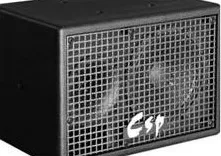Understanding Sound Barrier Fences
In our increasingly busy and noisy world, sound barrier fences have emerged as an innovative solution to combat noise pollution. These structures, often seen along highways or near industrial areas, serve a vital purpose in protecting residential communities from disruptive sound levels. But what exactly are sound barrier fences, and how do they work?
Sound barrier fences are specially designed walls made from various materials such as concrete, wood, or metal. Their primary function is to reduce the transmission of sound waves from one area to another. When sound waves encounter a solid barrier, some of their energy is absorbed or reflected, diminishing the noise that reaches nearby homes or recreational areas. The effectiveness of these barriers largely depends on their height, length, and the materials used in their construction.
One of the most critical aspects of sound barrier fences is their design. For maximum efficacy, these barriers are typically tall—often reaching heights of 12 to 20 feet. The design can also include irregular shapes or specific absorptive materials to further enhance noise reduction. In urban areas, where space is often at a premium, attractive designs blend aesthetics with functionality, helping to maintain the character of the neighborhood while doing their job.
sound barrier fence

The benefits of sound barrier fences extend beyond simply muffling noise. By creating a more peaceful living environment, these structures contribute to improved mental well-being for residents. Reduced exposure to traffic noise has also been linked to better sleep quality, increased productivity, and decreased stress levels. Additionally, they can increase property values by making homes more appealing to potential buyers who are sensitive to noise pollution.
However, the installation of sound barrier fences can be met with challenges. There are environmental considerations, such as the impact on wildlife and local ecosystems. Proper planning and consideration of local regulations are essential to ensure that these structures not only serve their purpose but also coexist harmoniously with the surrounding environment.
In conclusion, sound barrier fences are vital tools in managing noise pollution in our fast-paced world. By understanding their function and benefits, communities can better appreciate these structures as not just barriers to sound, but as essential components contributing to a quieter, more tranquil living environment.
-
Why Galvanized Trench Cover Steel Grating Resists Corrosion
NewsJul.10,2025
-
The Versatility and Strength of Stainless Expanded Metal Mesh
NewsJul.10,2025
-
Load Calculations in Steel Grating Platforms
NewsJul.10,2025
-
Keeping Pets and Kids Safe with Chicken Wire Deck Railing
NewsJul.10,2025
-
Hole Diameter and Pitch for Round Perforated Metal Sheets
NewsJul.10,2025
-
Aluminium Diamond Mesh in Modern Architecture
NewsJul.10,2025
Subscribe now!
Stay up to date with the latest on Fry Steeland industry news.

